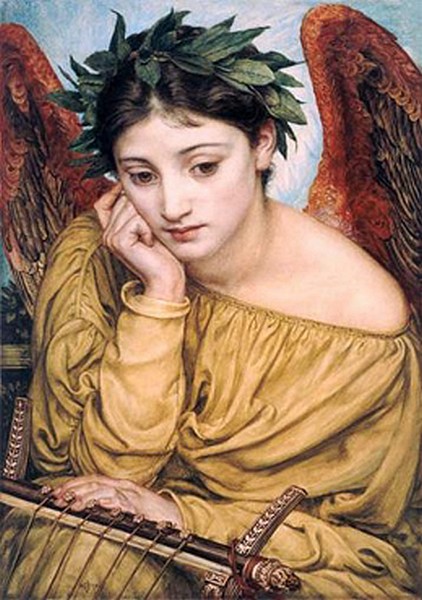Poi le parole?
- Details

The world of the opera has been discussing music and libretto's importance for centuries: whether what singers say is significant and must be understood, if the story is worthy of attention, etc. The debate has produced even two operas: Prima la musica, poi le parole, written by Antonio Salieri in the late XVIIIth century, and Capriccio. composed by Richard Strauss in 1940. This discussion has little to do with Art Song because the starting point is different: a poet writes a poem and later (no matter if months or centuries later) a composer chooses it and composes a song upon the verses; since then, words and music are inseparable. Or so I thought.
Until very recently, at every song recital in Barcelona used to be a program with the poems and their translations with which we were able to follow the songs without missing a word. But this good habit is being lost and it's more and more usual that we have to listen to the songs without any support; if we don't know them well enough, tough luck. I imagine it's due to economic problems, but I can't help thinking that poets are being despised. Sometimes who is introducing the recital even insists on the great value of the poets but then it doesn't matter if the poems are by Goethe or by the last summer song's author, we don't know what the singer is saying...
Let's suppose that the recital's organizer can't afford the cost of editing and printing a complete program with song texts and translations. Do we seek solutions?- Here in Barcelona the programs are for free or, if you prefer, they are included in the ticket price. If the price was risen one or two Euros, the increment would cover the cost. The problem is... yes, the tickets would be more expensive.
- I don't remember any song recital in Europe where I didn't pay for the program. I don't think it's a bad option, we choose whether we buy it or we don't.
- Another possibility is that we consult on the theatre's website the recital program (in case it's available, that would be another story) and we google for the texts and the translations to make our own program. I don't know about you, but I don't think it's too practical.
- An improved version: the concert promoter edits a document with the poems and the translations and uploads it on its website so as we can download and print it. Much better, although there are people that would have still technical problems.
- Some theatres are providing just the translations, without the original poems. It's better than nothing, at least we know what the poem is about, but I don't think it's a good solution. The singer chooses how he (or she) emphasizes the words, and if we don't have them we miss this part of the performing (Elisa Rapado explained that very well on her blog Canto y piano en el aula 300).
I'm sure there are more ways of making possible that the audience has the song texts of a recital, the matter is if it's really necessary. I mean, I do need them; if I don't have them and I don't know well enough the songs I don't enjoy the same, and knowing that I'm missing an essencial part of the recital doesn't make me feel happy. But perhaps it's not that important, perhaps most of the audience don't need the poems to fully enjoy it, perhaps the music is enough and I'm too touchy about this subject. What do you think? I would really like to know your opinion.
Which song could I choose to illustrate this post? Whatever, in fact. So I'm posting a mélodie I've been listening to those last days, L'énamourée, a song by Reynaldo Hahn and a poem by Théodore of Banville. I 've chosen one of my favorite performings, the one by Sarah Connolly accompanied by Eugène Asti.
Ils se disent, ma colombe,
Que tu rêves, morte encore,
Sous la pierre d'une tombe:
Mais pour l'âme qui t'adore
Tu t'éveilles ranimée,
Ô pensive bien-aimée!
Par les blanches nuits d'étoiles,
Dans la brise qui murmure,
Je caresse tes longs voiles,
Ta mouvante chevelure,
Et tes ailes demi-closes
Qui voltigent sur les roses.
Ô délices! je respire
Tes divines tresses blondes;
Ta voix pure, cette lyre,
Suit la vague sur les ondes,
Et, suave, les effleure,
Comme un cygne qui se pleure!
They said to each other, my dove,
that you dream, still dead,
beneath a tombstone:
but for the heart that adores you.
you waken, restored to life.
O pensive beloved.
During the nights white with stars,
in the murmuring breeze,
I caress your long veils,
your floating hair,
and your half-folded wings
which flutter over the roses!
Oh delight, I breathe
your divine blonde tresses!
your pure voice, this lyre,
follows the surge of the waves
and gently brushes them,
like a weeping swan!
(translation by Hyperion)














Comments powered by CComment